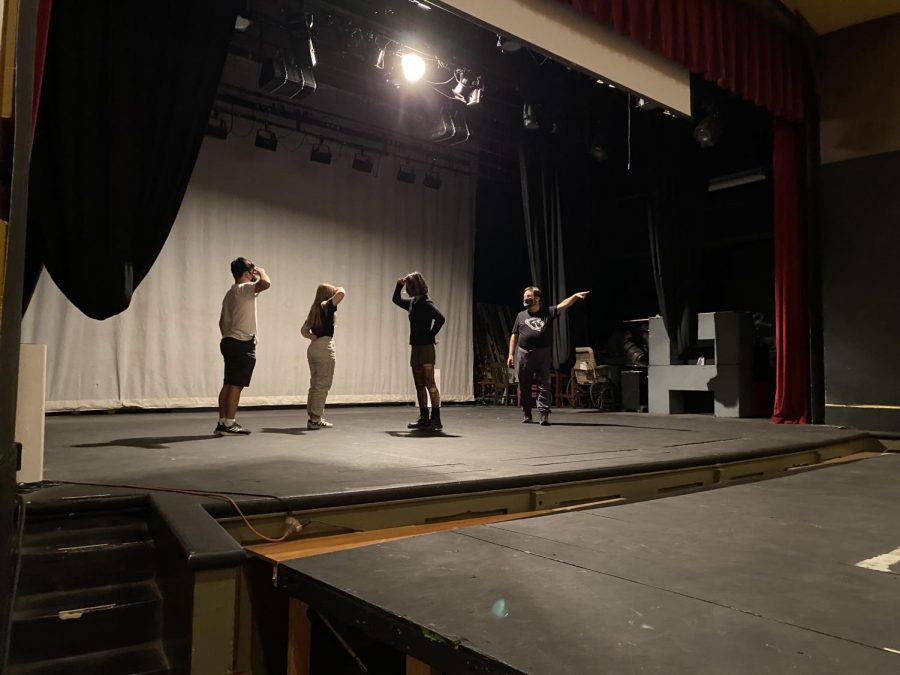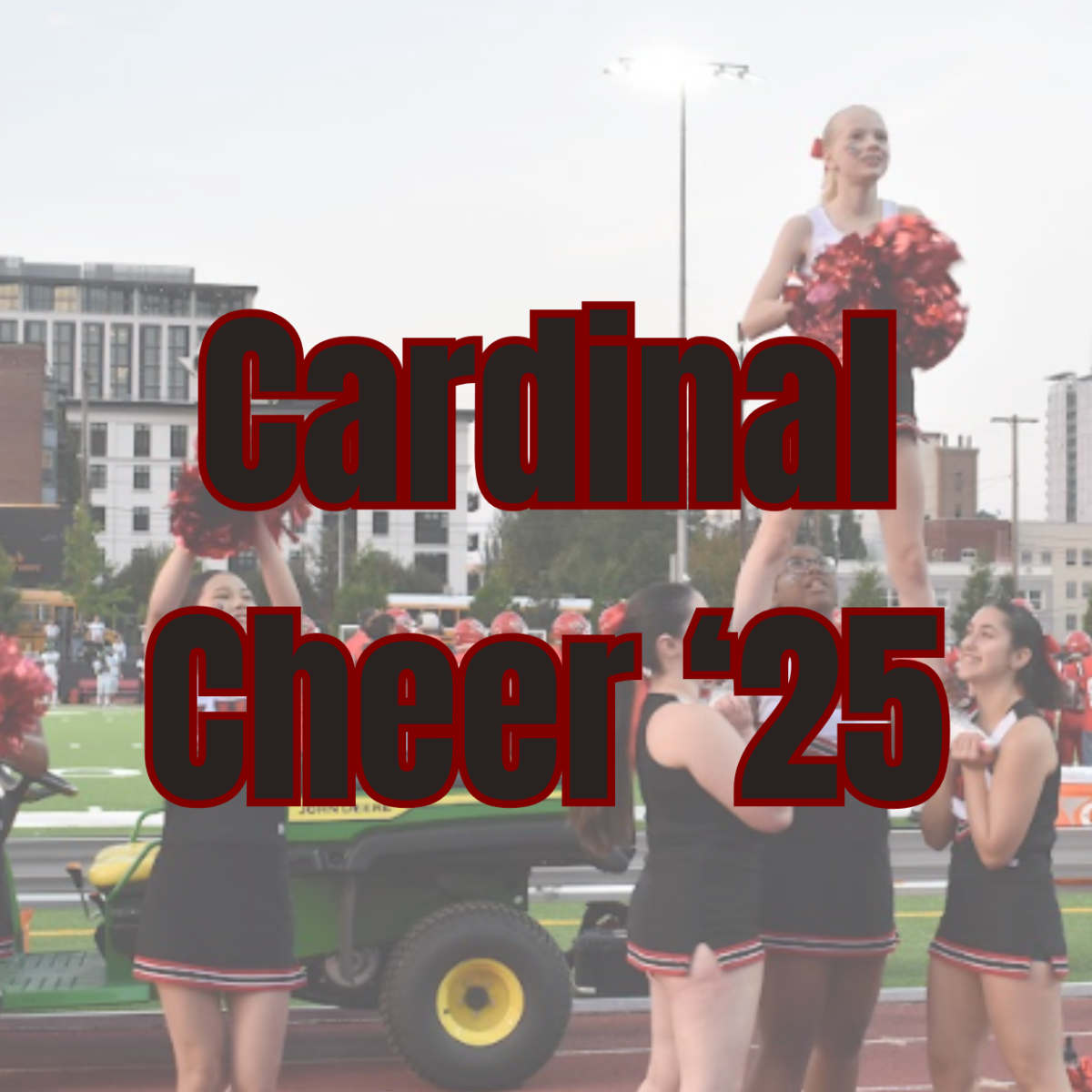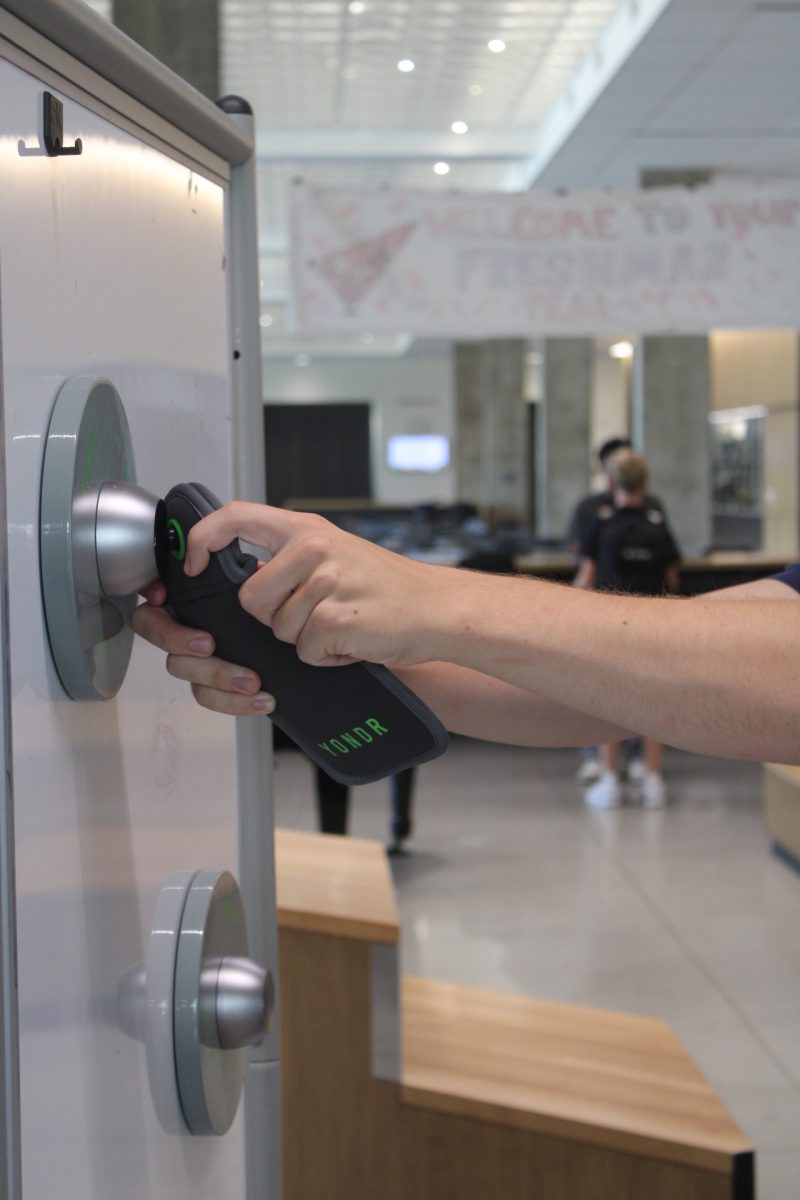Combined theater classes cause a stir
Theater teacher Jim Peerenboom teaches the new combined theater class.
September 30, 2021
This year, theater students of all levels were shocked to find out that their classes would be combined in an unprecedented way, though Lincoln theater classes have had a reputation of changing and adapting over time.
Theater classes at Lincoln are typically split into three different levels: performance exploration (beginner), intermediate theater, and IB theater. This year all three classes were combined into one. There weren’t enough students that registered for theater, causing the classes to merge.
Theater teacher Jim Peerenboom has never, in his 27 years of teaching at Lincoln, had to teach all three classes during the same period. He’s built a routine during his many years at Lincoln and this unexpected change forced everyone to adapt.
“How am I supposed to do well by these people?” Peerenboom asked himself when he heard the news. “And after a year of social and emotional learning, does this do that?”
Even if his initial reaction was not a happy one, he was able to overcome it and be there for his students.
“After that, I kind of went through the stages of grief,” said Peerenboom, joking. “Then, finally, acceptance. I wasn’t excited. Right now, I see several good things that could come from it. At the time, I did not see those.”
In his interview with the Cardinal Times, Peerenboom spoke about vulnerability in theater. When you make a mistake [on stage], everyone will see it. A big concern for Peerenboom is having everyone be in an environment where they aren’t surrounded by people in their own level of expertise.
Teaching everyone at once when they’re in different skill levels is a challenge for Peerenboom, but over these first few weeks, he has figured out how easily students can be switched around depending on their acting level.
“For the people that are new to the class but have all kinds of experience, it will be a lot easier for me to say, for this next unit, we’re going to have you go into this group because I think you’re ready for that,” Peerenboom said. “For the people last year who went through performance exploration [class last year], but really struggled, I can say, ‘let’s keep you in this unit here even though you’re in intermediate because you never got a really good shot at that last year.’”
The combined class is changing the experience for students as well, in both positive and negative ways.
Because of the new combined class, Cordelia (Cordy) Rouffy, a senior who TAs for Peerenboom, has been able to try her hand at teaching.
“I forgot that it was all classes combined when I first signed up for it, but when I got reminded, I didn’t really have a problem with it,” Rouffy said. “Seeing everyone in person was a bit overwhelming, but I don’t really find that much of a problem with it.”
In an interview with the Cardinal Times, Rouffy said, in a group so large, there are more opportunities for the students. The older students take the responsibility of being mentors and help the younger students with assignments and answering questions.
Rouffy also said the combination of classes has forced classmates to learn at a faster rate when mixed with the intermediate and IB students.
“There’s some people in the very first group that really don’t want to be on stage yet,” Rouffy said. “They haven’t really gotten that confidence. In fact, we were kind of pushing them onstage because they’re already grouped with the advanced people.”
Even though teaching combined classes is a challenge for not only Peerenboom, but the TAs and students as well, they have found a way to look at things in a new, more positive light.
“For me, there’s not a lot of pros and cons, I think it just is what it is,” Rouffy said.
Peerenboom is using it as a learning opportunity.
“Don’t ask why this happened to you,” Peerenboom said. “Ask why this happened for you.”





